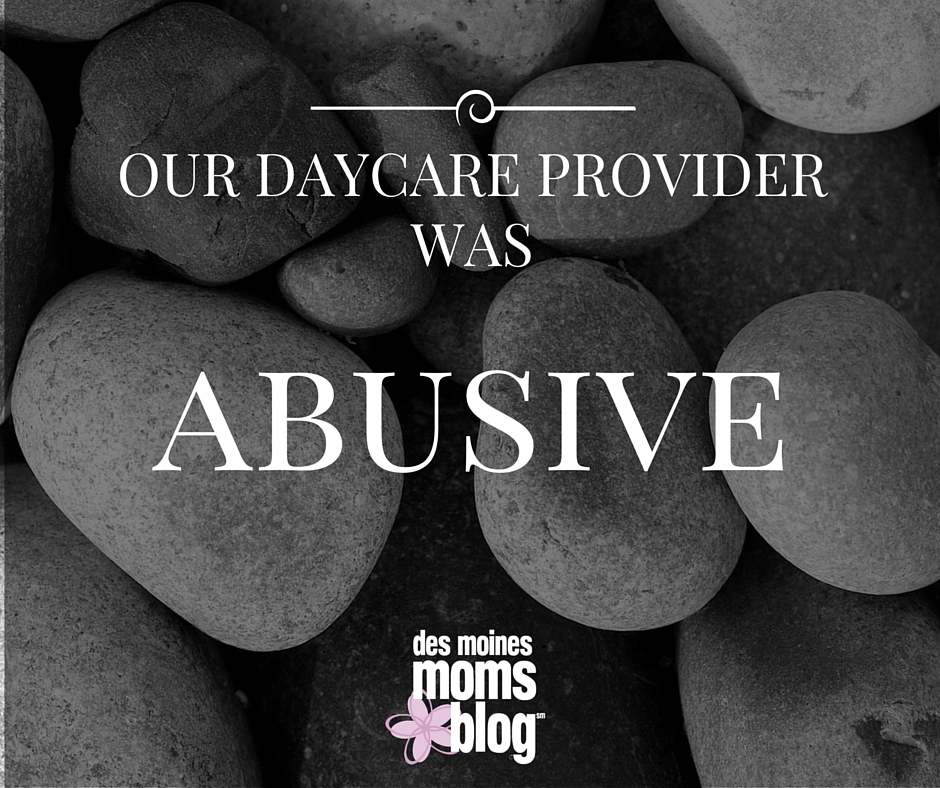Is Daycare Harmful? A Psychologist's Claims And Expert Rebuttals

Table of Contents
Psychologist's Claims of Daycare Harm
Some psychologists raise concerns about potential negative impacts of daycare on young children, focusing on several key developmental areas.
Attachment Theory and Separation Anxiety
A central argument revolves around attachment theory. Proponents of this view suggest that early and prolonged separation from primary caregivers in daycare settings can negatively affect the development of secure attachment.
- Claim: Frequent separations may lead to insecure attachment styles, such as anxious-avoidant or anxious-ambivalent attachment, impacting a child's ability to form healthy relationships later in life. (See Ainsworth et al., 1978, for initial research on attachment styles).
- Claim: Children in daycare may experience increased separation anxiety, exhibiting distress upon leaving and returning to their parents.
- Counterpoint: Research also indicates that the quality of caregiving, not just the presence of daycare, is a crucial determinant of attachment security. Secure attachment can still develop even with daycare attendance, provided the daycare setting provides consistent, responsive care.
Social-Emotional Development Concerns
Concerns also exist regarding potential negative impacts on social-emotional development.
- Claim: Some psychologists suggest that daycare environments, particularly those with high child-to-staff ratios, may increase aggression or difficulty with emotional regulation among young children.
- Claim: The fast-paced and highly stimulating environment of some daycare centers may overwhelm some children, hindering their ability to develop age-appropriate social skills.
- Counter-argument: High-quality daycare centers prioritize social-emotional learning through structured activities and interactions, fostering cooperation, empathy, and conflict resolution skills. A nurturing environment can promote emotional intelligence and resilience.
Cognitive Development Debates
Finally, questions are raised regarding the potential impact on early cognitive development.
- Claim: Concerns exist about whether the structured, group-based learning in daycare may not cater to individual learning styles and paces, potentially leading to attention deficits or hindering cognitive development in certain children.
- Claim: Some argue that the level of stimulation in daycare might be overwhelming for some children, impacting their focus and ability to engage in deeper cognitive processing.
- Counter-argument: Many high-quality daycare programs offer enriched learning environments with opportunities for exploration, play-based learning, and individual attention, supporting cognitive development across various learning styles. Early exposure to varied stimuli and social interactions can enhance cognitive growth.
Expert Rebuttals and Scientific Evidence
Conversely, substantial evidence supports the positive impacts of high-quality daycare on children's development.
High-Quality Daycare and Positive Outcomes
Numerous studies highlight the benefits of high-quality daycare settings.
- Positive Outcomes: Enhanced cognitive skills, including language development, problem-solving abilities, and improved pre-reading and pre-math skills.
- Social Competence: Improved social skills, such as cooperation, sharing, and conflict resolution.
- Research Findings: Longitudinal studies indicate a positive correlation between high-quality daycare attendance and improved academic outcomes later in life. (For example, search for studies on the effects of early childhood education on long-term academic achievement).
The Role of Teacher-Child Interaction
The quality of caregiver-child interaction is paramount.
- Positive Relationships: Nurturing, responsive caregivers who create secure and supportive relationships with children are crucial in mitigating potential negative impacts.
- Qualified Staff: Teacher training, qualifications, and appropriate staff-to-child ratios are essential factors contributing to positive outcomes.
- Responsive Caregiving: Sensitive and responsive caregiving practices, such as providing individual attention and meeting children's emotional needs, significantly impact children's development.
Considering the Whole Child and Family Context
It is essential to consider the unique context of each child and family.
- Individual Temperament: Children's individual temperaments, personalities, and developmental trajectories differ, significantly impacting their responses to daycare settings.
- Family Dynamics: Family support systems, parental involvement, and the overall family environment play a significant role in a child's well-being, regardless of daycare attendance.
- Holistic Approach: A holistic approach that considers individual child characteristics and family circumstances is necessary for accurate assessments and informed decision-making.
Conclusion
The question, "Is daycare harmful?" is complex and multifaceted. While some psychologists raise legitimate concerns regarding potential negative impacts, particularly in low-quality settings, substantial evidence supports the significant benefits of high-quality daycare for many children. The impact of daycare depends heavily on the quality of the program, the caregiver-child interactions, and the broader family and child context. Ultimately, the question, 'Is daycare harmful?' needs to be answered on a case-by-case basis. Choosing daycare wisely, considering your child's individual needs and selecting a high-quality program, is paramount. Research your options carefully and prioritize a nurturing and stimulating environment to ensure your child thrives. Finding safe daycare options requires diligence, but the rewards for your child's development can be significant.

Featured Posts
-
 Frantsiya I Polsha Podrobnosti O Podpisanii Dogovora Makronom I Tuskom Unian
May 09, 2025
Frantsiya I Polsha Podrobnosti O Podpisanii Dogovora Makronom I Tuskom Unian
May 09, 2025 -
 Credit Suisse To Pay Whistleblowers Up To 150 Million In Settlement
May 09, 2025
Credit Suisse To Pay Whistleblowers Up To 150 Million In Settlement
May 09, 2025 -
 Aviations Living Legends Celebrate Bravery Honoring Firefighters And More
May 09, 2025
Aviations Living Legends Celebrate Bravery Honoring Firefighters And More
May 09, 2025 -
 Palantir Stock A Prudent Investment Strategy For Todays Market
May 09, 2025
Palantir Stock A Prudent Investment Strategy For Todays Market
May 09, 2025 -
 Dakota Johnson Pedro Pascal Chris Evans Stin Tainia Materialists Deite To Treiler
May 09, 2025
Dakota Johnson Pedro Pascal Chris Evans Stin Tainia Materialists Deite To Treiler
May 09, 2025
